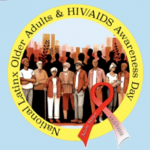Remember the wise advice about comparing apples to oranges? (Hint: Don’t do it.) Well, it’s especially true when you’re contrasting the development of a vaccine for COVID-19 with a vaccine against HIV, cancer or the common cold. In other words, just because scientists haven’t been able to develop a vaccine against HIV after several decades, doesn’t mean researchers need as long to create a COVID-19 vaccine. It also doesn’t mean a vaccine produced in record time is somehow fraudulent or dangerous.
So you’re telling me ...
— Jake Lucas (1️⃣2️⃣-1️⃣) (@Jake_lucas72) December 10, 2020
40 years of research there’s no vaccine for HIV
100 years of research for cancer no Vaccine
On going research STILL for the common cold no vaccine ...
Yet in 1 year we some how devolved a vaccine for “COVID” and your try to force me to take that ? pic.twitter.com/J1xuHskxRx
Yet those are the misleading ideas promoted by posts and memes on social media, such as the examples included in this article. The common phrasing of the posts reads something like this: “So you’re telling me that after 40 years of research, there’s no vaccine against HIV, and after 100 years of research on cancer, there’s no vaccine, and after 300 years of research into the common cold, there’s no vaccine…but after one year of research, they somehow magically developed a vaccine for COVID-19 at warp speed, and they want to force me to get that shot? Hell no!”
Fortunately, the fact-checkers at the news services Reuters and Agence France-Presse have broken down a few of the errors of logic in comparing HIV and COVID-19 vaccine efforts. Reuters also published a separate article comparing the vaccine efforts with the flu and cancer.
In short, each of these illnesses has its own unique challenges and cannot be compared against one another. To state the obvious, unlike HIV and COVID-19, cancer is not a communicable disease caused by a virus (although several viruses such as human papillomavirus can dramatically increase the risk of cancer). There are many causes of cancer, including genetics, radiation and chemical agents. There is, in fact, one approved cancer vaccine (for prostate cancer) and several more are showing promise in clinical trials.
One reason scientists struggle to develop a vaccine for HIV is that the virus mutates rapidly and can evade treatment by hiding out in cells—other viruses are not this sneaky. And, as Reuters points out, successful vaccines for other viruses, such as influenza, rely on inactivated or weakened versions of the virus to create the vaccine, but weakened HIV has not been effective in prompting immune responses and live HIV is too dangerous to use in a vaccine.
????????
— Dwight Corby (@DwightCorby) December 14, 2020
No vaccine for HIV after 40 years of research.
No vaccine for the common cold.
No vaccine for cancer after 100 years of research. Nothing.
A virus mysteriously appears and within a year a vaccine is created and we are all expected to take it. Does make you wonder.
So if you come across one of these misleading posts, don’t like it or share it. Instead, spread facts and links to dependable information. Your health—and that of everyone else—depends on it.
To learn more about HIV, cancer and COVID-19, visit the Basics pages of POZ.com, CancerHealth.com and COVIDhealth.com. Look for the Basics pages on each website for general must-know background facts. Other pages of the websites include more nuanced and timely articles. Relevant samples include “FDA Authorizes First U.S. COVID-19 Vaccine,” “Black Doctors Urge African Americans to Take COVID-19 Vaccine,” “The First COVID-19 Vaccine Is Here. Is It Safe for People With HIV?” and “COVID-19 Health Basics.”







33 Comments
33 Comments